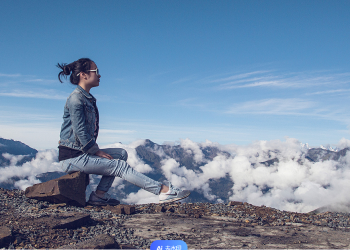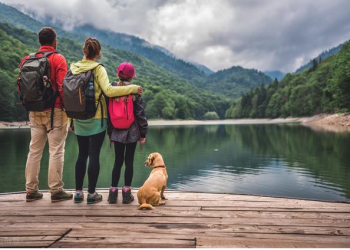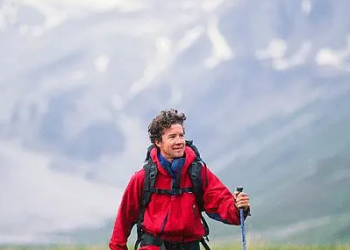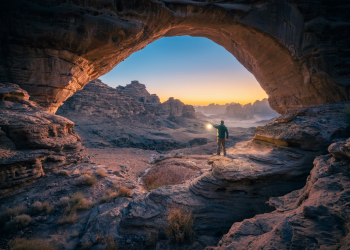Introduction
Solo travel has become increasingly popular in recent years, offering adventurers the opportunity to explore the world on their own terms. Whether you’re seeking self-discovery, adventure, or simply a break from the routines of daily life, traveling alone can be a deeply rewarding experience. In this guide, we’ll explore essential tips and advice for those embarking on solo adventures, empowering travelers to navigate the world with confidence and independence.
Choosing the Right Destination
The first step in planning a solo trip is selecting the right destination. Consider factors such as safety, language barriers, and accessibility when choosing where to go. Popular destinations for solo travelers include vibrant cities like Tokyo, backpacker havens like Thailand, and scenic destinations like New Zealand’s South Island.
Pre-Trip Planning
Before setting off on your solo adventure, thorough pre-trip planning is essential. Research your chosen destination extensively, including visa requirements, local customs, and any travel advisories. Create a detailed itinerary outlining your transportation, accommodations, and activities, but leave room for flexibility and spontaneity.
Packing Essentials
Packing efficiently is key for solo travelers, as you’ll be responsible for carrying your belongings throughout your journey. Pack light and prioritize versatile clothing items that can be mixed and matched. Essential items for solo travelers include a sturdy backpack, travel-sized toiletries, a reusable water bottle, and a portable charger.
Safety Precautions
Safety should always be a top priority for solo travelers. Take precautions such as staying in well-lit areas, avoiding risky neighborhoods, and keeping your belongings secure at all times. Trust your instincts and be cautious when interacting with strangers. In case of emergency, keep important documents and emergency contact information easily accessible.
Navigating Cultural Differences
One of the most enriching aspects of solo travel is the opportunity to immerse yourself in different cultures. Respect local customs and traditions, and take the time to learn a few basic phrases in the local language. Embrace cultural differences with an open mind and a spirit of curiosity.
Meeting People and Making Connections
Solo travel doesn’t mean you have to be alone the entire time. Seek out opportunities to meet other travelers and locals, whether through organized tours, hostels, or social media groups. Building connections on the road can lead to meaningful friendships and unforgettable experiences.
Embracing Independence
One of the greatest benefits of solo travel is the freedom to do as you please. Embrace the opportunity to chart your own course, make spontaneous decisions, and pursue your passions without compromise. Solo travel fosters independence, self-reliance, and personal growth.
Staying Connected
While solo travel offers a sense of freedom and independence, it’s essential to stay connected with loved ones back home. Keep in touch through phone calls, messages, or social media updates, and share your experiences with friends and family. Technology makes it easier than ever to stay connected, even from the most remote corners of the globe.
Mindful Budgeting
Traveling alone doesn’t have to break the bank. Set a realistic budget for your trip and stick to it by prioritizing experiences that align with your interests and values. Look for budget-friendly accommodations, transportation options, and dining choices, and take advantage of free or low-cost activities wherever possible.
Maintaining Health and Wellness
Self-care is crucial when traveling alone, as it’s easy to neglect your physical and emotional well-being in the excitement of exploration. Prioritize sleep, nutrition, and exercise, and listen to your body’s cues. Take breaks when needed and don’t hesitate to seek medical attention if you feel unwell.
Embracing Spontaneity
While planning is essential for solo travel, don’t be afraid to embrace spontaneity along the way. Allow yourself to deviate from your itinerary occasionally and seize opportunities as they arise. Some of the most memorable experiences happen when you least expect them.
Coping with Loneliness
Despite the many joys of solo travel, loneliness can sometimes creep in, especially during quiet moments or unfamiliar surroundings. Embrace solitude as an opportunity for self-reflection and personal growth, and remember that loneliness is a natural part of the human experience. Reach out to fellow travelers or engage in activities that bring you joy to combat feelings of isolation.
Documenting Your Journey
Capture the magic of your solo adventures through photography, journaling, or blogging. Documenting your journey not only preserves memories for years to come but also allows you to reflect on your experiences and share them with others. Take time to savor the moments and appreciate the beauty of the world around you.
Conclusion
Solo travel offers unparalleled opportunities for self-discovery, adventure, and personal growth. By following the tips outlined in this guide, solo travelers can navigate the world with confidence, independence, and a sense of curiosity. Embrace the freedom of solo exploration and embark on your next adventure with enthusiasm and excitement.

FAQs After The Conclusion:
- Is solo travel safe for women? Solo travel can be safe for women with proper planning, awareness, and precautionary measures. It’s essential to research destinations, stay vigilant, and trust your instincts while traveling alone.
- How can I meet other solo travelers while traveling alone? Solo travelers can meet others through organized tours, social media groups, hostels, and communal spaces such as cafes and parks. Be open to striking up conversations and forming connections with fellow adventurers.
- What should I do if I encounter language barriers while traveling alone? In case of language barriers, rely on non-verbal communication, translation apps, or language phrasebooks to navigate interactions. Learning a few basic phrases in the local language can also help bridge communication gaps.
- What types of accommodations are best for solo travelers? Solo travelers often prefer accommodations such as hostels, guesthouses, or boutique hotels that offer communal spaces and opportunities to meet other travelers. However, preferences vary, so choose accommodations that align with your comfort level and budget.
- How can I stay safe when exploring unfamiliar areas alone? To stay safe while exploring unfamiliar areas alone, research the destination beforehand, avoid wandering aimlessly at night, and trust your instincts. Stick to well-lit, populated areas and consider joining group tours for added security.
- What should I do if I experience homesickness while traveling alone? If you experience homesickness while traveling alone, reach out to loved ones for support through phone calls, messages, or video chats. Engage in activities that remind you of home, such as listening to familiar music or indulging in comfort foods.
- How can I minimize the risk of theft or scams as a solo traveler? To minimize the risk of theft or scams, keep your belongings secure, avoid displaying signs of wealth, and be cautious when interacting with strangers. Stay alert in crowded places and trust your intuition if something feels off.
- What are some solo travel destinations known for their safety and hospitality? Solo travelers often gravitate towards destinations known for their safety, hospitality, and ease of navigation. Countries such as Japan, New Zealand, Iceland, and Canada are popular choices for solo adventurers due to their low crime rates and traveler-friendly amenities.











